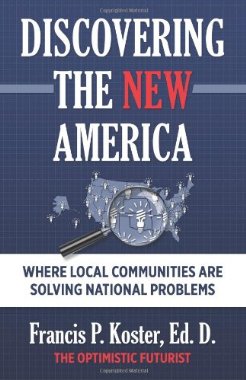If you took $1,000 and invested it in a certificate of deposit in any of the three largest banks in America today, you would earn 1% or less on your money and have to pay income tax on that gain. Take that same $1,000 and put it in a secured government issued bond or mutual fund, and your rate of return might get as high as 2% in today's market. But if you invest it in your own community, you could earn an after-tax rate of return of between 5-7%. Three times as much.
 We are conditioned to think that financial "investing" means sending your capital to Wall Street. There it will be put into paper securities (stocks, bonds, etc.), and hopefully when your next statement arrives, the dollar total is higher than you put in.
We are conditioned to think that financial "investing" means sending your capital to Wall Street. There it will be put into paper securities (stocks, bonds, etc.), and hopefully when your next statement arrives, the dollar total is higher than you put in.
There's no connection between the investor and the investment. And in today's market, where safer investments offer nearly no return, investment capital is increasingly paying to chase risk it has little understanding of. And all the while, the middlemen -- with their 100% perfect trading quarters and record bonus payouts -- demonstrate that the system really exists to siphon off money from this 'dumb capital'.
Wouldn't it be much better to invest your capital where you live? Where you actually know how it is being used, and can actually see whether it's creating tangible value? Where, if productive, your investment is making your local community stronger?
Francis Koster knows this is possible. In fact, he knows first-hand that there are many such opportunities, and they often offer higher returns on investment than many traditional Wall Street options Francis returns to the program to share his growing catalog of practical examples, collected from entrepreneurs and investors across the country and profiled in his new book Discovering the New America: Where Local Communities Are Solving National Problems.
Every week, Chris and I are approached by people who are uncomfortable keeping their money "in the system." They don't trust today's markets and/or they don't want to enable the parasitical Wall Street machine any further. They all share the same question: Where can I put my money where it will earn a return while doing good?
Koster's mission is finding acceptable answers to this question. He is one of the few pioneers exploring the emerging frontier of local, sustainable investing and cataloging his findings for all to consider and replicate.
Like many of the personal resilience practices we advocate on this site, Francis is revealing how tomorrow's "investing" will be much more hands on and direct than today's disembodied online brokerage experience -- but it will be much authentic, local, and economically healthy.
Click the play button below to listen to Chris' interview with Francis Koster (34m:00s):
This is a companion discussion topic for the original entry at https://peakprosperity.com/francis-koster-deploying-our-investment-capital-locally-yields-better-returns-for-all/